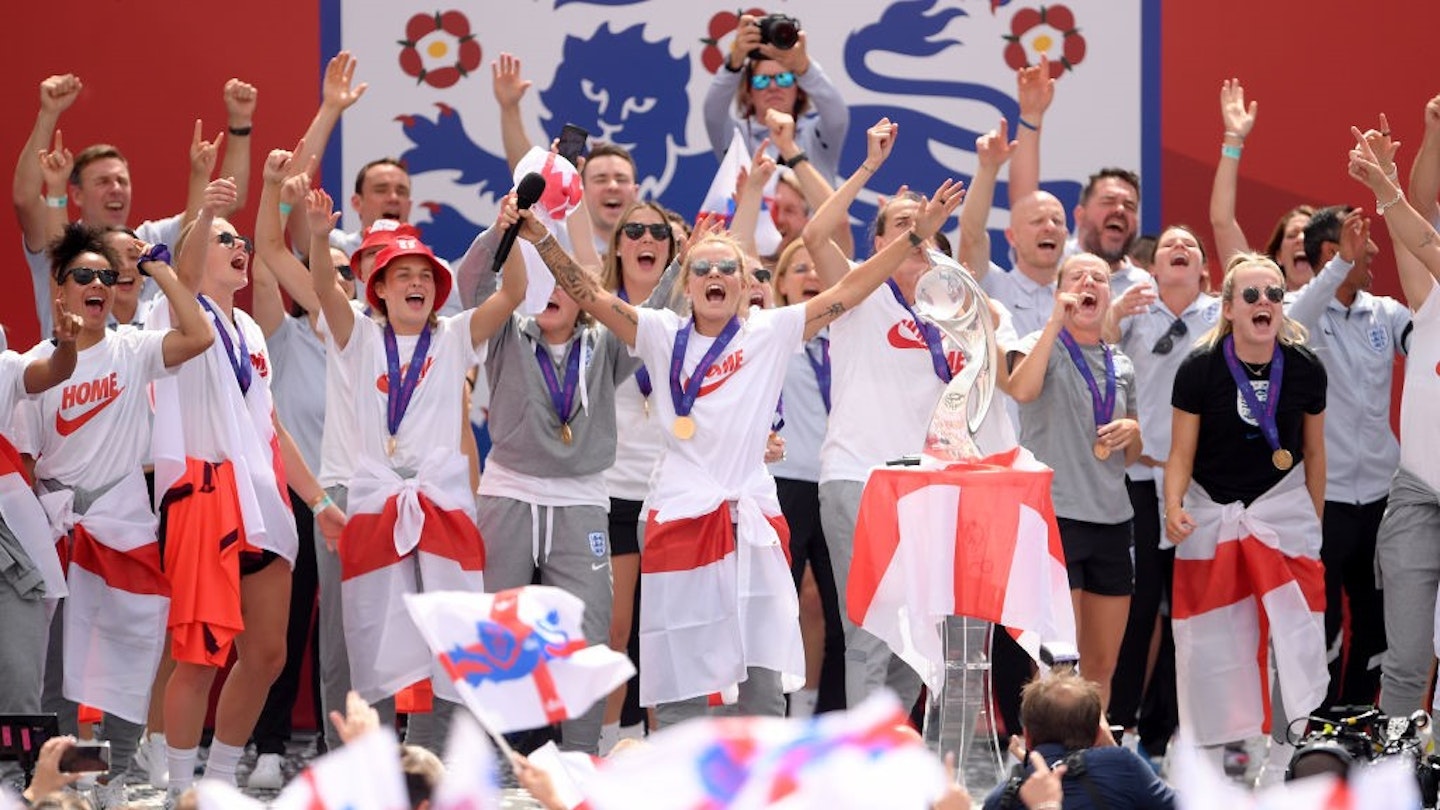The year is 2015; the Lionesses have just won Bronze in the Women’s Football World Cup and are returning home to a significantly raised profile and increased media and public interest in The Women’s Game.
Yet, they’re still paid less than the worst achieving men’s football team in the equivalent competition. The Football Association posting to the official England Twitter page, tweets, ‘Our #Lionesses can go back to being mothers, partners and daughters today, but they have taken on another title – heroes’.
Fast forward seven years and the women’s team have won the first major international tournament for England since the 1966 World Cup, and finally, FINALLY, attitudes have started to change. The FA’s 2015 tweet certainly wouldn’t fly in this climate, and with the (far too slowly) decreasing gender pay gap, the Women’s England team no longer have to supplement their incomes with second jobs – which certainly wasn’t the case at the 2015 World Cup.
Do the England Women’s team have extra jobs?
While it would be frankly laughable to imagine David Beckham et al propping up their multi-million-pound contracts as labourers or teachers, it was a reality for the England women’s team up until not that long ago, with loads of them working as coaches and columnists and midfielder Katie Chapman even training to be a beautician at the time of the 2015 tournament.
There’s still a long way to go when it comes to closing the gender pay gap in the beautiful game, but thanks to high profile campaigns and general outrage at the pay discrepancy in football, things are starting to even out.
What do England's women get paid in comparison to men?
In a statement released prior to the tournament, the UK Football Association released a statement saying, ‘The FA pays its women’s players exactly the same as their male counterparts for representing England, both in terms of match fees and match bonuses. This parity has been in place since January 2020.’
Those match fees equate to around £2000 per game, with a bonus of a reported £55,000 for winning the tournament – which, you know, they did.
But it’s not such an even playing field (pun intended) when it comes to the Union of European Football Associations – UEFA – with major differences in prize funds for men and women.
For 2022 the UEFA prize fund was doubled from 2017’s £6.7m to £13.4m – but it still trails behind the earnings of winning Italian players in the 2020 Euros, who were estimated to walk away with £28.4m each.
